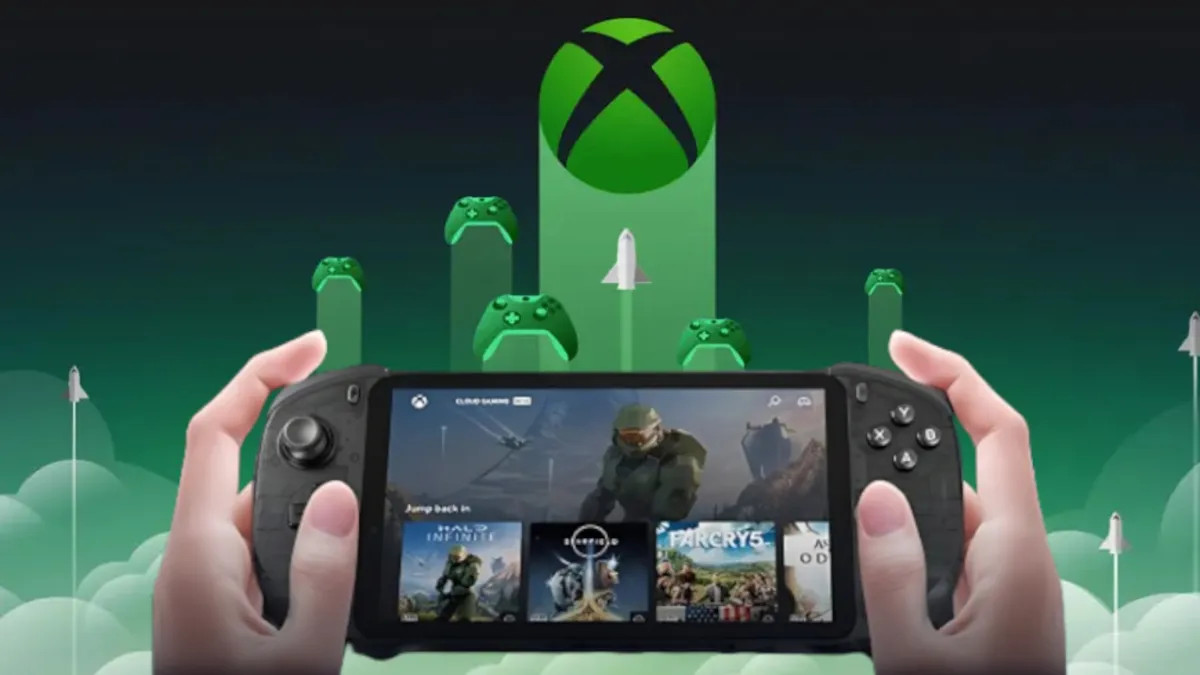
Today, Microsoft launched a new official Xbox Podcast that explores the immediate and long-term future of the Xbox platform. The gaming landscape is undergoing a significant transformation, with first-party content now surpassing third-party titles in revenue. Additionally, Xbox Game Pass is revolutionizing how users interact with the platform, offering a fresh approach to gaming.
Microsoft is more open than ever to third-party collaborations, even with competitors like Sony. The recent announcement of Helldivers 2 making its way to Xbox in the coming weeks exemplifies this shift. In a conversation featuring Jason Ronald, VP of next-gen, and Jason Beaumont, VP of Xbox Platform, hosted by Ethan Rothamel from Xbox's social team, the discussion centered around the hardworking nature of the team. Beaumont remarked, “It’s the hardest I’ve ever seen the team working; there’s just so much going on.”
Much of the work currently being done is “under the hood” as Beaumont described. Key investments are being made to ensure that features released for PC, cloud gaming, or mobile are accessible across all platforms. Jason Ronald highlighted the upcoming Xbox Ally and Xbox Ally X, which are set to debut this holiday season, showcasing Microsoft’s commitment to delivering enhanced gaming experiences.
Ronald emphasized that the future of Xbox is focused on putting the player at the center of the experience. He noted that many gamers now play across multiple devices, expressing excitement about how players can seamlessly transition from the Xbox Ally to their console for full fidelity gameplay on their big-screen TVs. This evolution aims to allow players to enjoy their favorite games wherever they choose.
Throughout the podcast, the team discussed Xbox Cloud Gaming, hinting at the expansion of availability to new regions and the introduction of additional cloud servers to meet growing demand. Beaumont stated, “You’re going to see us continue to invest in this area.” The goal is straightforward: to bring more games to more players globally. Ronald also teased potential new ways to access Xbox Cloud Gaming, including the possibility of a cloud-only subscription model for Xbox Game Pass.
Jason Beaumont shared insights on the impressive growth of Xbox Play Anywhere, noting that transactions outside of Game Pass are also seeing significant double-digit growth. He mentioned that developers who support this initiative are experiencing increased play rates due to the multi-device availability of their games. The podcast also highlighted record revenue for Xbox Game Pass, along with historic payouts to developers.
As the conversation shifted to the next-generation Xbox, Ronald hinted at groundbreaking AI-powered rendering techniques developed in collaboration with AMD. The focus is on creating a unified experience across platforms, potentially allowing users to access games from multiple storefronts on a single device, while also maintaining compatibility with existing Xbox titles. This alignment with AMD aims to push the boundaries of gaming technology.
Microsoft is dedicated to creating a transformative gaming experience through innovative silicon and rendering technologies, including neural rendering. This commitment is evident in the upcoming Xbox Ally X, which will feature dedicated processing units that allow for experimentation with AI-powered gaming experiences. Ronald reminisced about the original Xbox and its vision for connecting gamers globally, emphasizing the importance of long-term investment in technology to shape the future of gaming.
Throughout the podcast, Ronald and Beaumont provided insights into the design of the Xbox Ally and the development of Xbox's PC offerings. However, the implementation of Xbox Play Anywhere relies heavily on developer participation, and there have been mixed results. Some titles, such as Wuchang: Fallen Feathers and Resident Evil 7, initially promised this feature only to retract it later, leading to skepticism among developers about offering multiple licenses for free.
Despite challenges, Ronald believes that the key to delivering on Microsoft’s vision lies in silicon compatibility. With a vast library of legacy content, including major titles like Fallout, not all games are compatible with Windows PCs. As Xbox continues to innovate and expand, it remains to be seen how they will address these compatibility issues while enhancing the overall gaming experience for players.